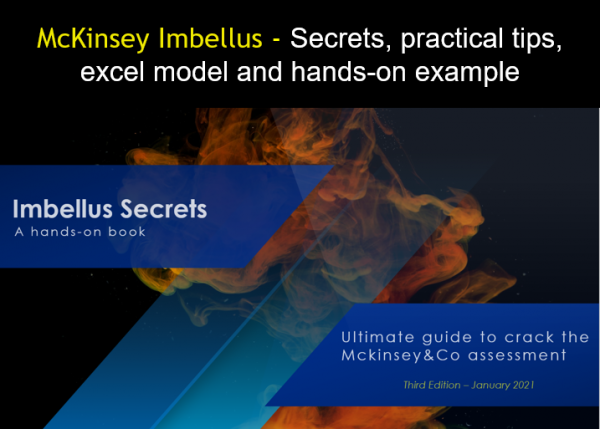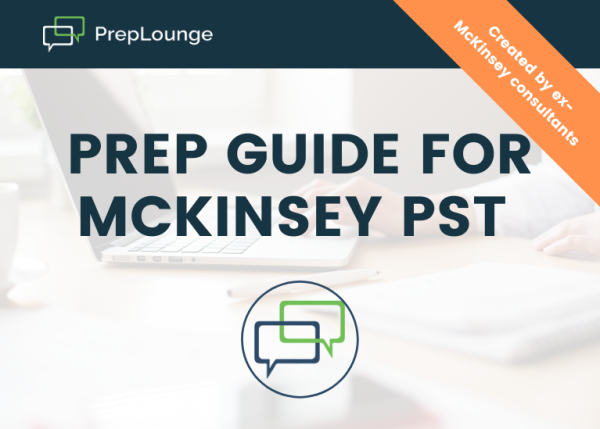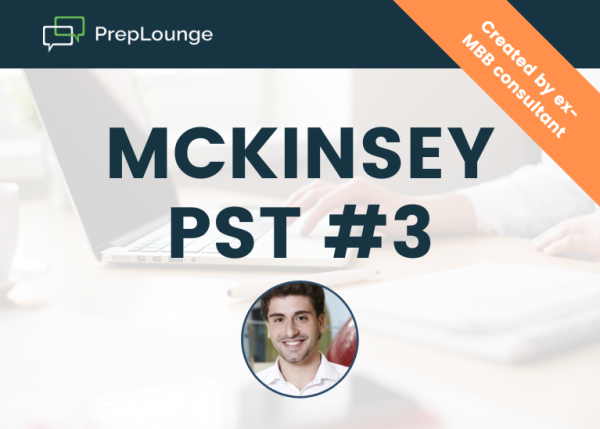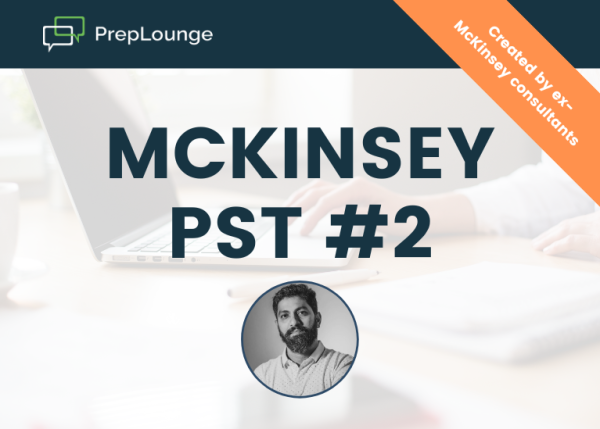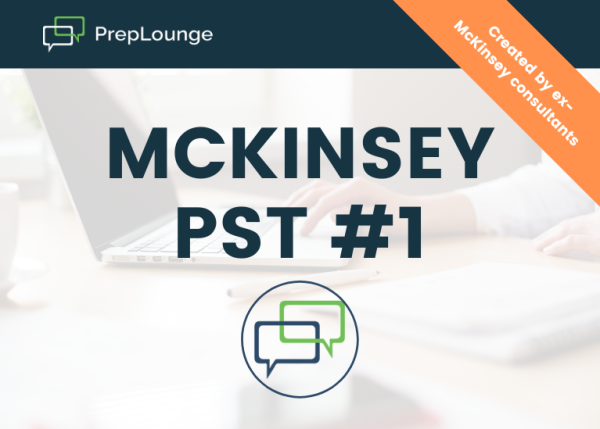Hello the community,
I am preparing for Mckinsey final round and have a question:
-how do you suggest me to prepare? do i have to focus on something different with respect to the first round?
thanks
Hello the community,
I am preparing for Mckinsey final round and have a question:
-how do you suggest me to prepare? do i have to focus on something different with respect to the first round?
thanks
Hey there - Congrats on making it to the final round.
Frankly, not really, stick to your guns and do your thing. You have obviously been doing something right.
Finally, good luck and enjoy the process, you will do great :D
Hi there,
Q: I am preparing for McKinsey final round and have a question: how do you suggest me to prepare? Do i have to focus on something different with respect to the first round?
The final round has the same structure as the first (fit + case+ your questions); however in a final round, partners may:
To prepare, you can work on the following:
- - - - - - - - - - - - - - - - - - - - - - - - - - - - - - - - - - - - - - - - - - - - - - - - - - - - - - - - - - - - - - - - - - - -
Extra reading:
▶ 4 PEI Dimensions You Should Know
▶ 4 Ways McKinsey Interviews are Different
▶ How to Prepare for a Case Interview
- - - - - - - - - - - - - - - - - - - - - - - - - - - - - - - - - - - - - - - - - - - - - - - - - - - - - - - - - - - - - - - - - - - -
Bonus point: partners often give cases related to the industries they cover. If you know their sectors, it is a good idea to review those industries / read their research papers on that / do cases related to that sector.
Best,
Francesco
Hey there,
Congrats on the 2nd round - almost there :-)
The first thing that you should know is that you have what it takes and you can go confidently into the 2nd round. The 2nd round is just to confirm what has been noticed during the 1st, yet with a different set of eyes from more senior firm leaders.
Now to your questions:
McKinsey is trying really hard to create an objective and standardized interview experience for all candidates, across offices, practices, and interviewers. As a result, you should expect exactly the same interviewing format as in the first round
You will be evaluated on the same criteria, and metrics, with the same types of cases and questions.
Now, that's the theory. :-)
Quick reality check!
That being said, partners still often employ their own way of doing interviews based on their personal preferences, which means that sometimes the final round with them can be less predictable.
Some focus on the case, others focus solely on the fit part (and deviate from the traditional PEI to ask other personal fit questions), and some stick to the standard format. I had a candidate recently who had to go through two cases and one of them was made up on the spot, which made it very tricky.
In general, the more senior the partner, the more likely are they to deviate from the standard interview format because they a. can b. have their own way of doing things. :-)
So now you know the practice.
What does this mean for you and your preparation?
Nothing much.
Continue with your preparation, meaning
During the interview
If you managed to pass the first round, you should have it in you to pass the second round as well.
Fingers crossed and let me know if you need some help with McKinsey!
Feel free to read some of the articles I wrote here about the process:
Cheers,
Florian
Not really, just act upon the feedback you got in the first round and repeat the things you did well in the first round.
Moreover, if you know who is interviewing you, look at their bios and read up on their area of expertise, because partners and associate partners tend to give cases from their own area of expertise.
The final round is very similar to the first round in that it'll consist of a case and the PEI.
Partners tend to focus more on the PEI, so I'd work on getting some stories which are great stories and where it's very clear what the ‘challenge’ is. You want to make it very clear why the situation is very challenging for you.
Then the case is more likely to be a ‘non traditional’ case as the partners want to test your ability to think through a problem rather than repeat a framework. So practice thinking through structuring questions which don't fit into neat buckets. You can get these easily from the news - read the headlines and think about how you'd structure the problem. E.g., how would you roll out a covid vaccination programme to a country; how would you ensure fair voting in a country etc.,
Good luck!
Hi there,
You do not need to do anything majorly different. Ultimately, you need to stay flexible/adaptable/agile so keep testing yourself in unique situations. If there were identified weakness from the 1st round, make sure to address these.
Here's some general case prep reading: https://www.preplounge.com/en/articles/pitfalls-case-interview-preparation
Some casing reading: https://www.preplounge.com/en/articles/how-to-shift-your-mindset-to-ace-the-case
And some fit reading: https://www.preplounge.com/en/articles/tell-me-about-yourself-interview-question
The things being tested are the same. You should be particularly prepared for fit, though, as partners are particularly focused on this.
Everything you did to prepare for the first round still matters.
Sometimes partners like to discuss their areas of expertise so it helps to read up on some trends and drivers in focus industries if you already know about your interviewer's background (also check if they have any recent publications).
Compared to round one, you should also reflect on your questions you might have for your interviewer. Avoid any tactical topics that any recruiter could answer for you. Try to meet them more at the strategic/visionary level
Structured framework for sustainable corporate development, including market penetration, product development, market development and diversification.
The Influence Model by McKinsey emerged in the early 2000s and is the result of practical experience of the consultants at McKinsey & Company.
Find out what the McKinsey Imbellus Game is all about. Get specific insights on how to ace your case interview at McKinsey.
Discover what McKinsey's 7S framework is and how it helps companies maximize their strengths and identify weaknesses while focusing on 7 internal elements.


